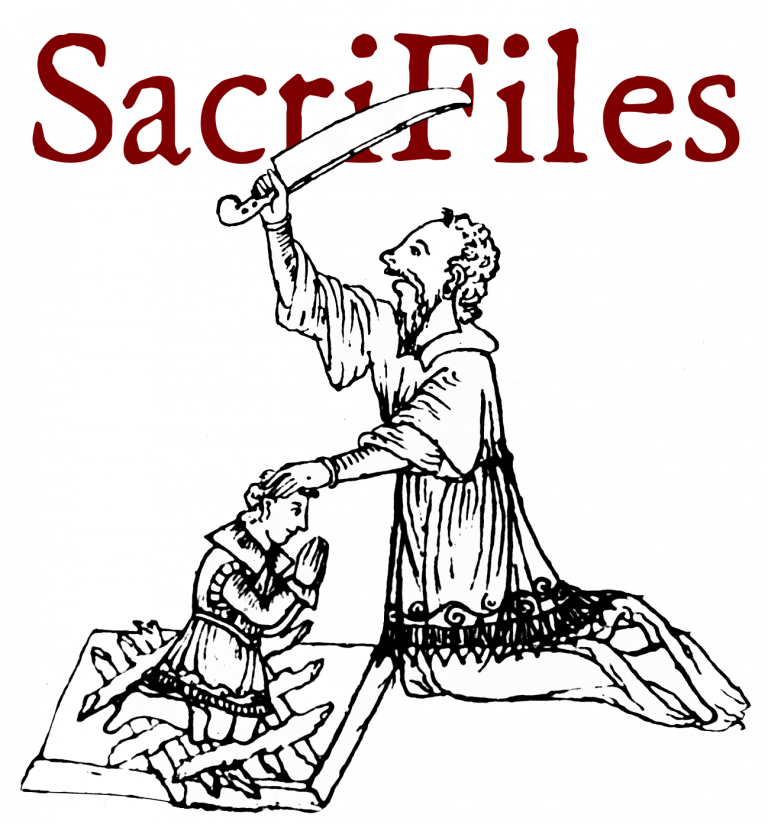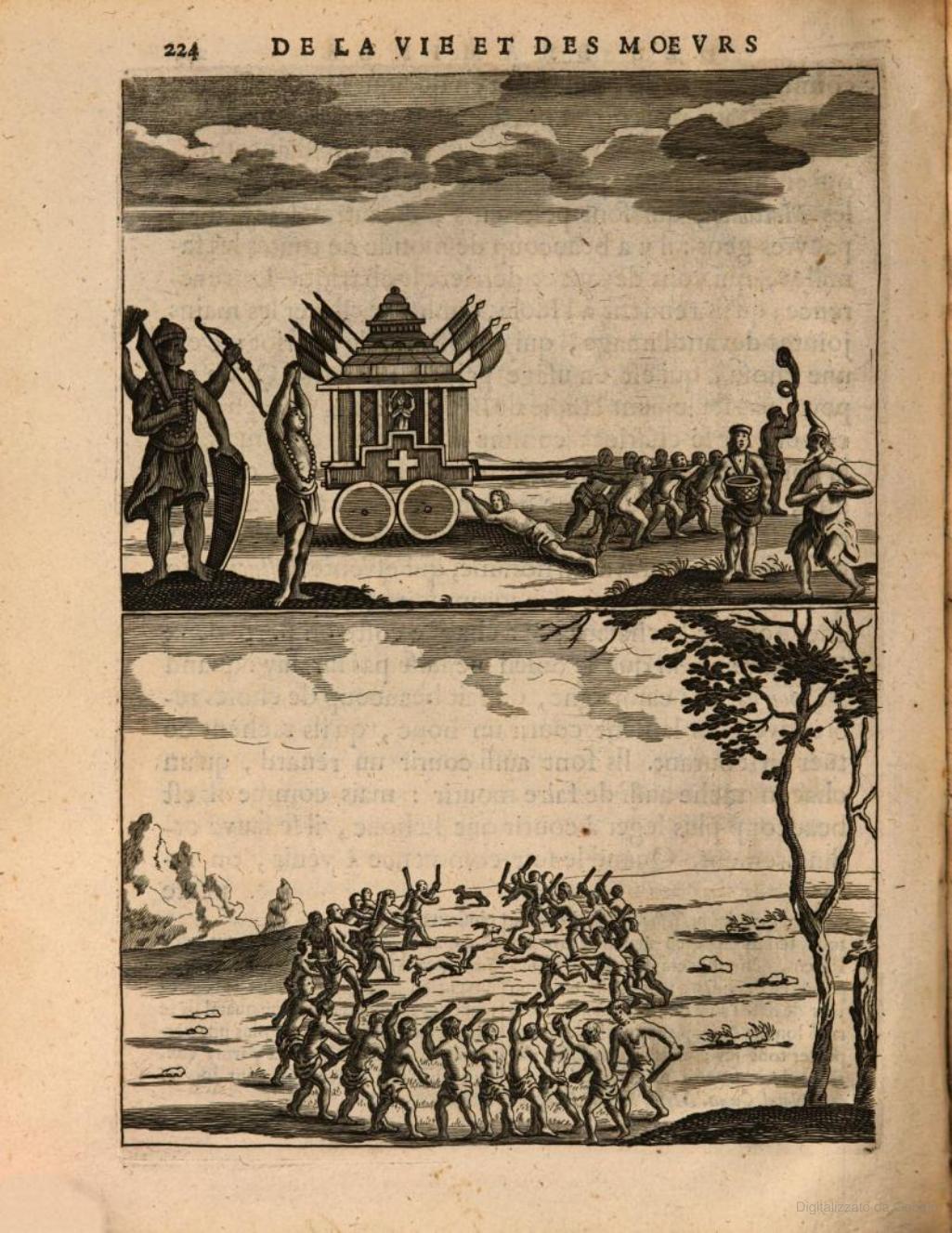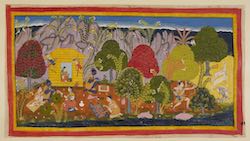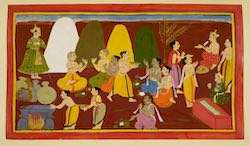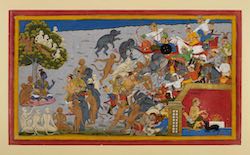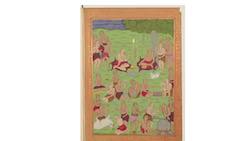Ritual killing of a goat and a fox during ceremonies in honor of Vishnu and Shiva
Year: 1670
From: Abraham Rogerius, Le Théâtre de l’idolatrie ou la porte ouverte, Amsterdam, Jean Schipper, 1670, p. 224
Keywords: Animal Sacrifice India
Edited by: Chiara Petrolini
Related Documents:
A mountain city with multistoried hill architecture. Outside the gates on the right is a Saivite shrine with a lingum covered by floral offerings to which a goat is led, probably for sacrifice. (17th)
from: Unidentified Hindu chronicle of a King
Metropolitan Museum, New York
Prior to taking up their abode in the hut, oblations have to be made to the presiding deities. Lakṣmaṇa hunts deer on the right, and returns to the hut to cook it; Rāma offers part of it as a sacrifice. The two brothers then eat, while Sītā waves a scarf over the food to keep the flies off, and she then retires to the hut to eat her own meal. The three begin their lives in exile in the peace of Citrakūṭa (ca 1653)
from: Ramayana, [ms Add. 15296(1), fol. 71]
British Library, London [from Udaipur]
The feast before the sacrifice (1712)
from: Ramayana, Bala Kanda, Ms Add. 15295, fol. 31
British Library, London [from Udaipur]
Rāma sends out his entire army, headed by Lakṣmaṇa and Vibhīṣaṇa, to fight Indrajit at the Nikumbhilā grove, where he is performing more magical sacrifices. Indrajit is sacrificing to the fire again with a black goat, while around him a furious battle is raging between Lakṣmaṇa and his allies and the other demons. Vibhīṣaṇa has advised Rāma to send Lakṣmaṇa to finish off Indrajit at the place where he is performing his magical arts, before he can make himself even more powerful. Inscribed above Indrajit: Iṃdrajit. (ca 1653)
from: Ramayana [ms Add. 15297(1), fol. 115]
British Library, London [from Udaipur]
A scene with fakirs and ritualistic animal sacrificeFaquires Bequedes Mahometans (1678-1686)
from: Nicolo Manucci, Histoire de l'Inde depuis Tamerlank jusquà Orangzeb [ms Libro Rosso, fol. 50v]
Bibliothèque nationale de France, Paris
Keywords: Animal Sacrifice India
